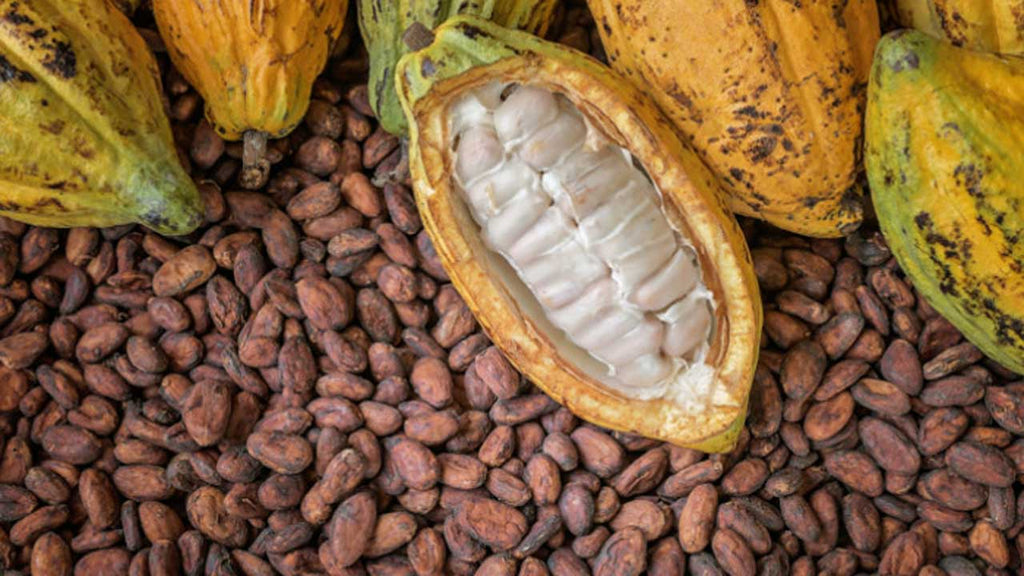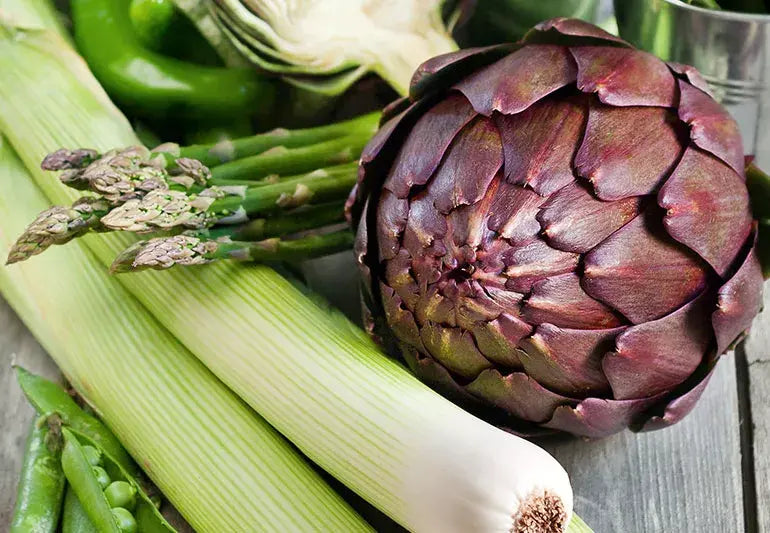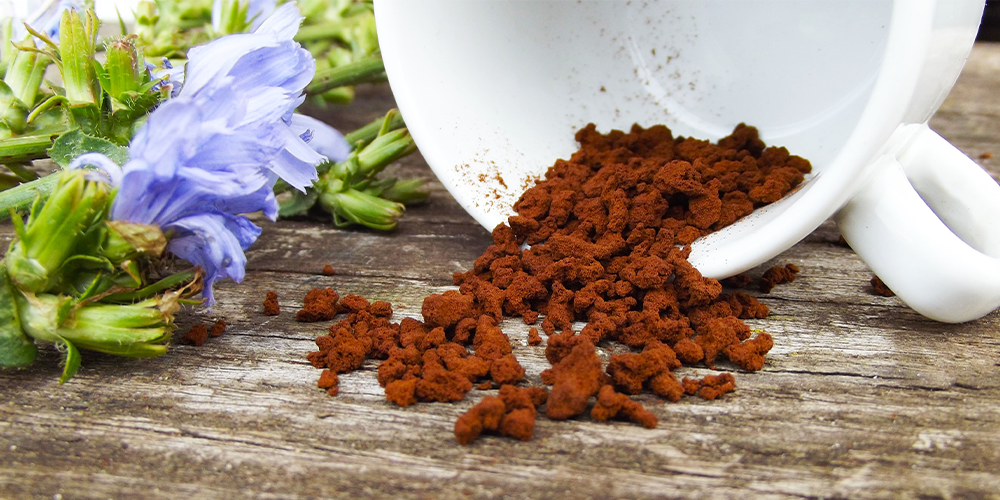
9 Health Benefits of Lion’s Mane Mushroom

1. Could protect against dementia
The brain’s ability to grow and form new connections typically declines with age, which may explain why mental functioning worsens in many older adults (2Trusted Source).
Studies have found that lion’s mane mushrooms contain two special compounds that can stimulate the growth of brain cells: hericenones and erinacines (3Trusted Source).
Additionally, animal studies have found that lion’s mane may help protect against Alzheimer’s disease, a degenerative brain disease that causes progressive memory loss.
In fact, lion’s mane mushroom and its extracts have been shown to reduce symptoms of memory loss in mice, as well as prevent neuronal damage caused by amyloid-beta plaques, which accumulate in the brain during Alzheimer’s disease (4Trusted Source, 5Trusted Source, 6Trusted Source).
A 2020 study of people with mild Alzheimer’s disease found that supplementation with 1 gram of lion’s mane mushroom daily for 49 weeks significantly improved cognitive test scores compared with a placebo (7Trusted Source).
The ability of lion’s mane mushroom to promote nerve growth and protect the brain from Alzheimer’s-related damage may explain some of its beneficial effects on brain health.
2. Helps relieve mild symptoms of depression and anxiety
Up to one-third of people living in developed countries experience symptoms of anxiety and depression (8, 9).
While there are many causes of anxiety and depression, chronic inflammation could be a major contributing factor.
Animal research has found that lion’s mane mushroom extract has antiinflammatory effects that can reduce symptoms of anxiety and depression in mice (10Trusted Source).
Other animal studies have found that lion’s mane extract can also help regenerate brain cells and improve the functioning of the hippocampus, a region of the brain that processes memories and emotional responses (11Trusted Source, 12Trusted Source)
3. May speed recovery from nervous system injuries
The nervous system consists of the brain, spinal cord, and other nerves that travel throughout the body. These components work together to send and transmit signals that control almost every bodily function.
Brain or spinal cord injuries can cause various adverse medical outcomes. They often cause paralysis or loss of mental functions and can take a long time to heal.
However, research has found that lion’s mane mushroom extract may help speed recovery from these types of injuries by stimulating the growth and repair of nerve cells (15Trusted Source, 16Trusted Source). It may also help reduce the severity of brain damage after a stroke.
4. Protects against ulcers in the digestive tract
Ulcers can form anywhere along the digestive tract, including the stomach, small intestine, and large intestine.
Two major factors typically cause stomach ulcers: overgrowth of the bacteria H. pylori and damage to the mucous layer of the stomach that’s often due to long-term use of nonsteroidal anti-inflammatory drugs (NSAIDs) (17Trusted Source).
Lion’s mane extract may protect against the development of stomach ulcers by inhibiting the growth of H. pylori and protecting the stomach lining from damage (18Trusted Source).
Several older studies have found that lion’s mane extract can prevent the growth of H. pylori in a test tube, but no studies have tested whether the extract has the same effects inside the stomach (19Trusted Source, 20Trusted Source).
Another 2013 animal study found that lion’s mane extract was more effective at preventing alcohol-induced stomach ulcers than traditional acid-lowering drugs — and without any negative side effects (21Trusted Source).
Lion’s mane extract can also reduce inflammation and prevent tissue damage in other intestinal areas. In fact, they may help treat inflammatory bowel diseases like ulcerative colitis and Crohn’s disease (22Trusted Source, 23Trusted Source, 24Trusted Source).
A 2016 study of people with ulcerative colitis found that taking a mushroom supplement containing 14% lion’s mane extract significantly reduced symptoms and improved quality of life after 3 weeks (25Trusted Source).
5. Reduces risk of heart disease
Major risk factors for heart disease include the following:
One 2010 study of rats fed a high fat diet and given daily doses of lion’s mane extract showed 27% lower triglyceride levels and 42% less weight gain after 28 days (28Trusted Source).
Since obesity and high triglycerides are both considered risk factors for heart disease, this is one way that lion’s mane mushrooms contribute to heart health.
Test-tube studies have also found that lion’s mane extract can help prevent the oxidation of cholesterol in the bloodstream (29Trusted Source).
Oxidized cholesterol molecules tend to attach to artery walls, causing them to harden and increase the risk of heart attack and stroke. Reducing oxidation is beneficial for heart health.
What’s more, lion’s mane mushrooms contain a compound called hericenone B, which can decrease the rate of blood clotting and lower the risk of heart attack or stroke (30Trusted Source).
Lion’s mane mushrooms appear to benefit the heart and blood vessels in multiple ways, but studies involving humans are needed to support this.
6. Helps manage diabetes symptoms
Diabetes is a disease that occurs when the body’s ability to manage blood sugar levels is impaired. As a result, levels are consistently elevated.
Chronically high blood sugar levels eventually cause complications like kidney disease, nerve damage in the hands and feet, and vision loss.
Lion’s mane mushroom may be beneficial for diabetes management by improving blood sugar management and reducing some of these side effects.
Several animal studies have shown that lion’s mane can cause significantly lower blood sugar levels in both normal and diabetic mice, even at daily dosages as low as 2.7 milligrams (mg) per pound (6 mg per kg) of body weight (31Trusted Source, 32Trusted Source).
One way that lion’s mane lowers blood sugars is by blocking the activity of the enzyme alpha-glucosidase, which breaks down carbs in the small intestine (33Trusted Source).
When this enzyme is blocked, the body is unable to digest and absorb carbs as effectively, which results in lower blood sugar levels.
In addition to lowering blood sugars, lion’s mane extract may reduce diabetic nerve pain in the hands and feet.
7. May help fight cancer
Cancer occurs when your DNA becomes damaged, causing your cells to divide and replicate out of control.
Some research suggests that lion’s mane mushroom has cancerfighting abilities thanks to several of its unique compounds (35Trusted Source, 36Trusted Source).
In fact, when lion’s mane extract is mixed with human cancer cells in a test tube, they cause the cancer cells to die faster. This has been demonstrated with several types of cancer cells, including liver, colon, stomach, and blood cancer cells (37Trusted Source, 38Trusted Source, 39Trusted Source, 40 Trusted Source).
However, at least one older study has failed to replicate these results (41Trusted Source).
In addition to killing cancer cells, lion’s mane extract has also been shown to slow the spread of cancer.
8. Reduces inflammation and oxidative stress
Chronic inflammation and oxidative stress are believed to be the root causes of many modern illnesses, including heart disease, cancer, and autoimmune disorders (47Trusted Source).
Research shows that lion’s mane mushrooms contain powerful antiinflammatory and antioxidant compounds that may help reduce the impact of these illnesses (48Trusted Source).
In fact, a 2012 study examining the antioxidant abilities of 14 different mushroom species found that lion’s mane had the fourth highest antioxidant activity and recommended it be considered a good dietary source of antioxidants (49Trusted Source).
Several animal studies have found that lion’s mane extract reduced markers of inflammation and oxidative stress in rodents and may be especially useful in managing inflammatory bowel disease, liver damage, and stroke (22Trusted Source, 50Trusted Source, 51Trusted Source).
Lion’s mane mushrooms may also help reduce some of the health risks associated with obesity, as they have been shown to decrease the amount of inflammation fat tissue releases (52Trusted Source).
9. Boosts the immune system
A strong immune system protects the body from bacteria, viruses, and other disease-causing pathogens.
On the other hand, a weak immune system puts the body at a higher risk of developing infectious diseases.
Animal research shows that lion’s mane mushroom can boost immunity by increasing the activity of the intestinal immune system, which protects the body from pathogens that enter the gut through the mouth or nose (53Trusted Source.)
These effects may partly be due to beneficial changes in gut bacteria that stimulate the immune system (54Trusted Source).
A 2012 study even found that supplementing with lion’s mane extract daily nearly quadrupled the lifespan of mice injected with a lethal dose of salmonella bacteria (55Trusted Source).
Resources: https://www.healthline.com/nutrition/lions-manemushroom#immune-system
The brain’s ability to grow and form new connections typically declines with age, which may explain why mental functioning worsens in many older adults (2Trusted Source).
Studies have found that lion’s mane mushrooms contain two special compounds that can stimulate the growth of brain cells: hericenones and erinacines (3Trusted Source).
Additionally, animal studies have found that lion’s mane may help protect against Alzheimer’s disease, a degenerative brain disease that causes progressive memory loss.
In fact, lion’s mane mushroom and its extracts have been shown to reduce symptoms of memory loss in mice, as well as prevent neuronal damage caused by amyloid-beta plaques, which accumulate in the brain during Alzheimer’s disease (4Trusted Source, 5Trusted Source, 6Trusted Source).
A 2020 study of people with mild Alzheimer’s disease found that supplementation with 1 gram of lion’s mane mushroom daily for 49 weeks significantly improved cognitive test scores compared with a placebo (7Trusted Source).
The ability of lion’s mane mushroom to promote nerve growth and protect the brain from Alzheimer’s-related damage may explain some of its beneficial effects on brain health.
2. Helps relieve mild symptoms of depression and anxiety
Up to one-third of people living in developed countries experience symptoms of anxiety and depression (8, 9).
While there are many causes of anxiety and depression, chronic inflammation could be a major contributing factor.
Animal research has found that lion’s mane mushroom extract has antiinflammatory effects that can reduce symptoms of anxiety and depression in mice (10Trusted Source).
Other animal studies have found that lion’s mane extract can also help regenerate brain cells and improve the functioning of the hippocampus, a region of the brain that processes memories and emotional responses (11Trusted Source, 12Trusted Source)
3. May speed recovery from nervous system injuries
The nervous system consists of the brain, spinal cord, and other nerves that travel throughout the body. These components work together to send and transmit signals that control almost every bodily function.
Brain or spinal cord injuries can cause various adverse medical outcomes. They often cause paralysis or loss of mental functions and can take a long time to heal.
However, research has found that lion’s mane mushroom extract may help speed recovery from these types of injuries by stimulating the growth and repair of nerve cells (15Trusted Source, 16Trusted Source). It may also help reduce the severity of brain damage after a stroke.
4. Protects against ulcers in the digestive tract
Ulcers can form anywhere along the digestive tract, including the stomach, small intestine, and large intestine.
Two major factors typically cause stomach ulcers: overgrowth of the bacteria H. pylori and damage to the mucous layer of the stomach that’s often due to long-term use of nonsteroidal anti-inflammatory drugs (NSAIDs) (17Trusted Source).
Lion’s mane extract may protect against the development of stomach ulcers by inhibiting the growth of H. pylori and protecting the stomach lining from damage (18Trusted Source).
Several older studies have found that lion’s mane extract can prevent the growth of H. pylori in a test tube, but no studies have tested whether the extract has the same effects inside the stomach (19Trusted Source, 20Trusted Source).
Another 2013 animal study found that lion’s mane extract was more effective at preventing alcohol-induced stomach ulcers than traditional acid-lowering drugs — and without any negative side effects (21Trusted Source).
Lion’s mane extract can also reduce inflammation and prevent tissue damage in other intestinal areas. In fact, they may help treat inflammatory bowel diseases like ulcerative colitis and Crohn’s disease (22Trusted Source, 23Trusted Source, 24Trusted Source).
A 2016 study of people with ulcerative colitis found that taking a mushroom supplement containing 14% lion’s mane extract significantly reduced symptoms and improved quality of life after 3 weeks (25Trusted Source).
5. Reduces risk of heart disease
Major risk factors for heart disease include the following:
- obesity
- high triglycerides
- large amounts of oxidized cholesterol
- an increased tendency to get blood clots
One 2010 study of rats fed a high fat diet and given daily doses of lion’s mane extract showed 27% lower triglyceride levels and 42% less weight gain after 28 days (28Trusted Source).
Since obesity and high triglycerides are both considered risk factors for heart disease, this is one way that lion’s mane mushrooms contribute to heart health.
Test-tube studies have also found that lion’s mane extract can help prevent the oxidation of cholesterol in the bloodstream (29Trusted Source).
Oxidized cholesterol molecules tend to attach to artery walls, causing them to harden and increase the risk of heart attack and stroke. Reducing oxidation is beneficial for heart health.
What’s more, lion’s mane mushrooms contain a compound called hericenone B, which can decrease the rate of blood clotting and lower the risk of heart attack or stroke (30Trusted Source).
Lion’s mane mushrooms appear to benefit the heart and blood vessels in multiple ways, but studies involving humans are needed to support this.
6. Helps manage diabetes symptoms
Diabetes is a disease that occurs when the body’s ability to manage blood sugar levels is impaired. As a result, levels are consistently elevated.
Chronically high blood sugar levels eventually cause complications like kidney disease, nerve damage in the hands and feet, and vision loss.
Lion’s mane mushroom may be beneficial for diabetes management by improving blood sugar management and reducing some of these side effects.
Several animal studies have shown that lion’s mane can cause significantly lower blood sugar levels in both normal and diabetic mice, even at daily dosages as low as 2.7 milligrams (mg) per pound (6 mg per kg) of body weight (31Trusted Source, 32Trusted Source).
One way that lion’s mane lowers blood sugars is by blocking the activity of the enzyme alpha-glucosidase, which breaks down carbs in the small intestine (33Trusted Source).
When this enzyme is blocked, the body is unable to digest and absorb carbs as effectively, which results in lower blood sugar levels.
In addition to lowering blood sugars, lion’s mane extract may reduce diabetic nerve pain in the hands and feet.
7. May help fight cancer
Cancer occurs when your DNA becomes damaged, causing your cells to divide and replicate out of control.
Some research suggests that lion’s mane mushroom has cancerfighting abilities thanks to several of its unique compounds (35Trusted Source, 36Trusted Source).
In fact, when lion’s mane extract is mixed with human cancer cells in a test tube, they cause the cancer cells to die faster. This has been demonstrated with several types of cancer cells, including liver, colon, stomach, and blood cancer cells (37Trusted Source, 38Trusted Source, 39Trusted Source, 40 Trusted Source).
However, at least one older study has failed to replicate these results (41Trusted Source).
In addition to killing cancer cells, lion’s mane extract has also been shown to slow the spread of cancer.
8. Reduces inflammation and oxidative stress
Chronic inflammation and oxidative stress are believed to be the root causes of many modern illnesses, including heart disease, cancer, and autoimmune disorders (47Trusted Source).
Research shows that lion’s mane mushrooms contain powerful antiinflammatory and antioxidant compounds that may help reduce the impact of these illnesses (48Trusted Source).
In fact, a 2012 study examining the antioxidant abilities of 14 different mushroom species found that lion’s mane had the fourth highest antioxidant activity and recommended it be considered a good dietary source of antioxidants (49Trusted Source).
Several animal studies have found that lion’s mane extract reduced markers of inflammation and oxidative stress in rodents and may be especially useful in managing inflammatory bowel disease, liver damage, and stroke (22Trusted Source, 50Trusted Source, 51Trusted Source).
Lion’s mane mushrooms may also help reduce some of the health risks associated with obesity, as they have been shown to decrease the amount of inflammation fat tissue releases (52Trusted Source).
9. Boosts the immune system
A strong immune system protects the body from bacteria, viruses, and other disease-causing pathogens.
On the other hand, a weak immune system puts the body at a higher risk of developing infectious diseases.
Animal research shows that lion’s mane mushroom can boost immunity by increasing the activity of the intestinal immune system, which protects the body from pathogens that enter the gut through the mouth or nose (53Trusted Source.)
These effects may partly be due to beneficial changes in gut bacteria that stimulate the immune system (54Trusted Source).
A 2012 study even found that supplementing with lion’s mane extract daily nearly quadrupled the lifespan of mice injected with a lethal dose of salmonella bacteria (55Trusted Source).
Resources: https://www.healthline.com/nutrition/lions-manemushroom#immune-system







